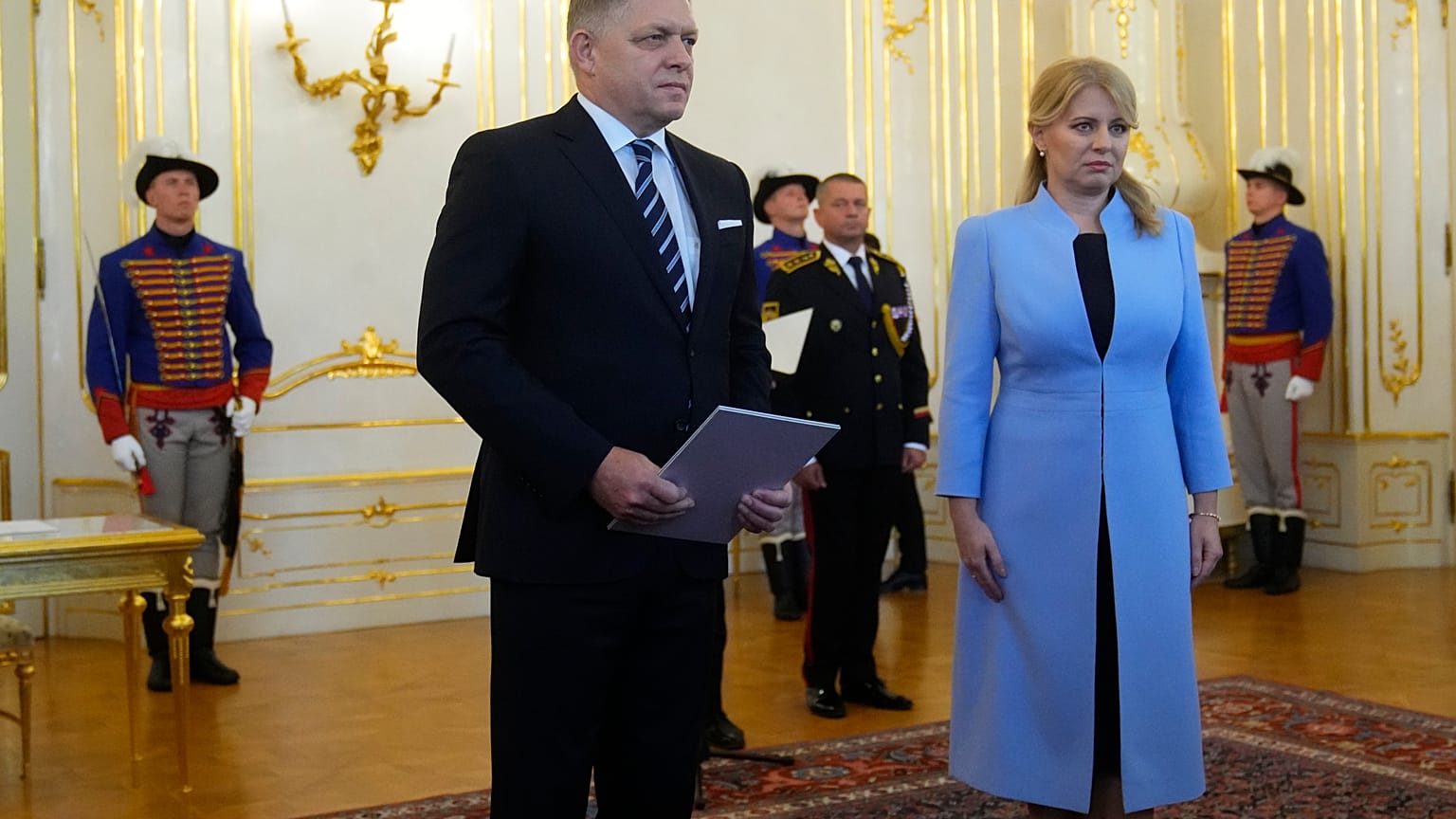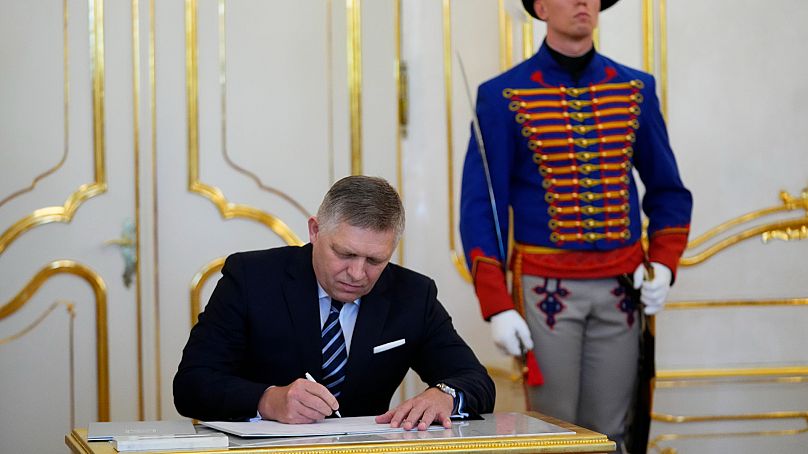Robert Fico has become Slovakia's new Prime Minister. His left-populist Smer party won against the liberal, Western-oriented Progressive Slovakia by nearly 7 percentage points. Euronews Hungary took to the streets of Bratislava to find out what are Slovaks expecting from his new government.
Robert Fico and his cabinet were appointed by President Zuzana Caputova on Wednesday. His party won 42 seats in the 150-seat Parliament and formed a coalition with the centre-left HLAS and nationalist SNS parties.
 ADVERTISEMENT
ADVERTISEMENT
 ADVERTISEMENT
ADVERTISEMENT
Fico formed a parliamentary majority by signing a coalition government deal with the Hlas, or Voice, party and the Slovak National Party.
Fico pledged in his election campaign to end military support for Ukraine and criticised sanctions on Russia.
On the streets of Bratislava, one man told Euronews he supported this policy.
"We have no money after a war in Ukraine and after COVID-19 but maybe we will have a more stable government and maybe less anger I hope so," he said.
Another man said he was less hopeful of his country's future: "What we expect economically from the upcoming years is nothing good, so hopefully it won't be as bad as it seems at the moment.
"Demographically speaking, hopefully, not too many young, educated people will leave this country and hopefully, there will be no backlash in terms of human rights, as well."
Fico stepped down as prime minister in 2018 amid mass protests against corruption after journalist Jan Kuciak and his partner Martina Kusnirova were murdered.
Kuciak was targeted for investigating ties between government officials and criminal groups.
This time, Fico campaigned heavily on pledges to end Slovak official military aid to Ukraine, to make foreign policy independent of EU partners and Washington, and to stop migrants seeking to make it to Western Europe.
Bratislava has provided Ukraine with extensive humanitarian and military assistance under previous governments, including artillery and fighter jets.
Fico has also spoken out against political liberalism, the activities of non-governmental organisations, and more rights for transgender people.
He has praised neighbouring Hungary's leader Viktor Orban as a politician for defending his country's interests and could make alliances with him where their interests align.
Even though he has railed against Brussels and the US, Fico has repeatedly said that he has no intention of removing Slovakia from the European Union or the NATO military alliance.















